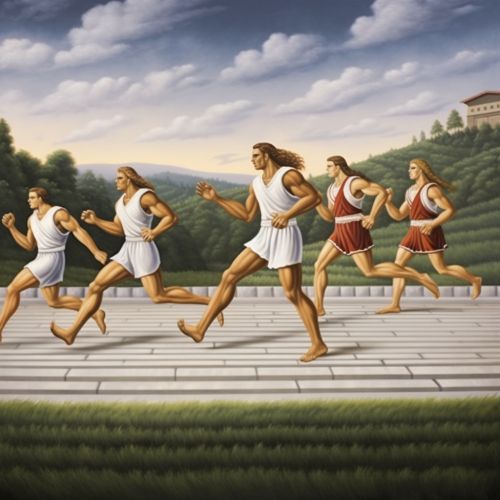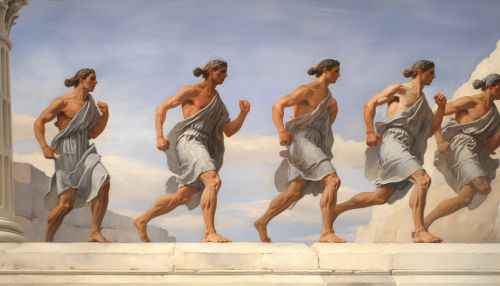Panathenaic Games
Origins and History
The Panathenaic Games were a significant event in ancient Greece, celebrated every four years in honor of the goddess Athena. The festivities were a part of the larger Panathenaia, a religious festival that was the most important celebration in ancient Athens. The games were established in the 6th century BC and continued until the 3rd century AD, making them one of the longest-running athletic competitions in history.


Events
The Panathenaic Games included a variety of events, many of which were similar to those in the Olympic Games. These included chariot racing, wrestling, boxing, pankration (a combination of wrestling and boxing), pentathlon (which included running, jumping, discus throw, javelin throw, and wrestling), and musical contests. The games also featured unique events such as torch races and boat races, which were not seen in other ancient Greek athletic competitions.
Significance and Cultural Impact
The Panathenaic Games were more than just an athletic competition; they were a significant cultural event that brought the city of Athens together. The games were an opportunity for citizens to demonstrate their physical prowess, artistic talent, and intellectual abilities. They also played a crucial role in reinforcing social norms and values, as the games were deeply intertwined with religious rituals and civic pride.
